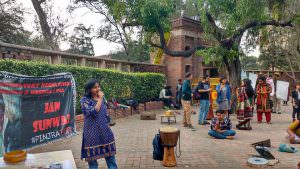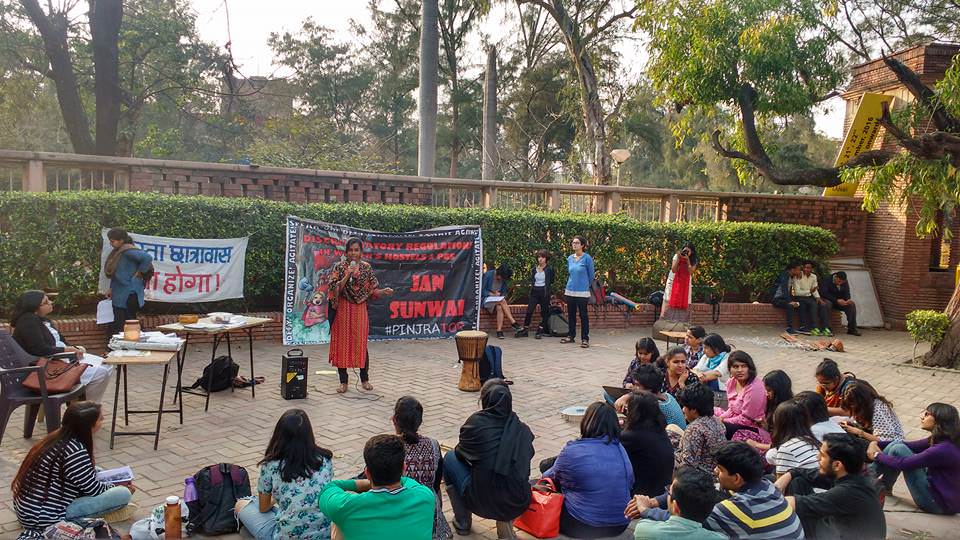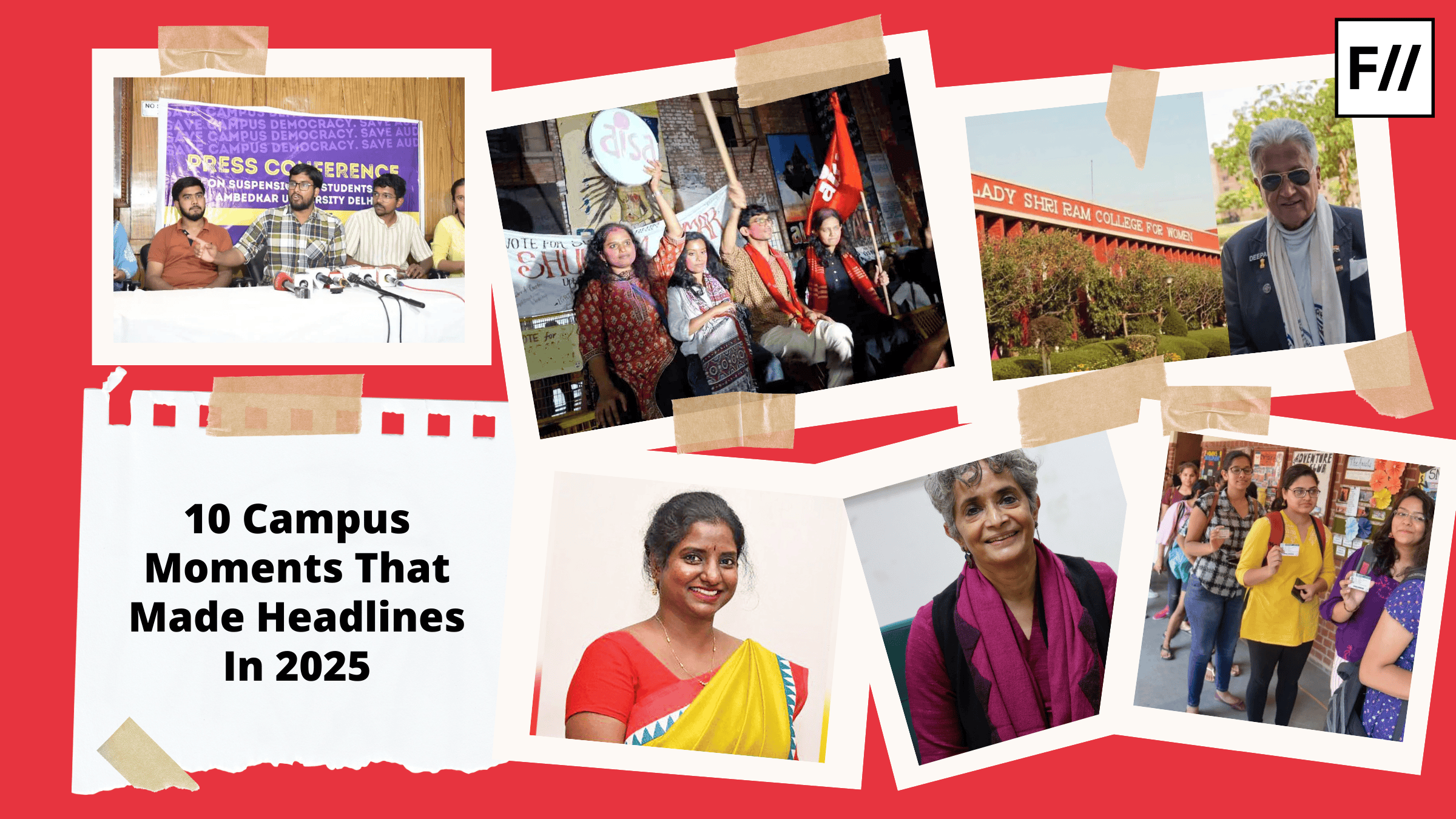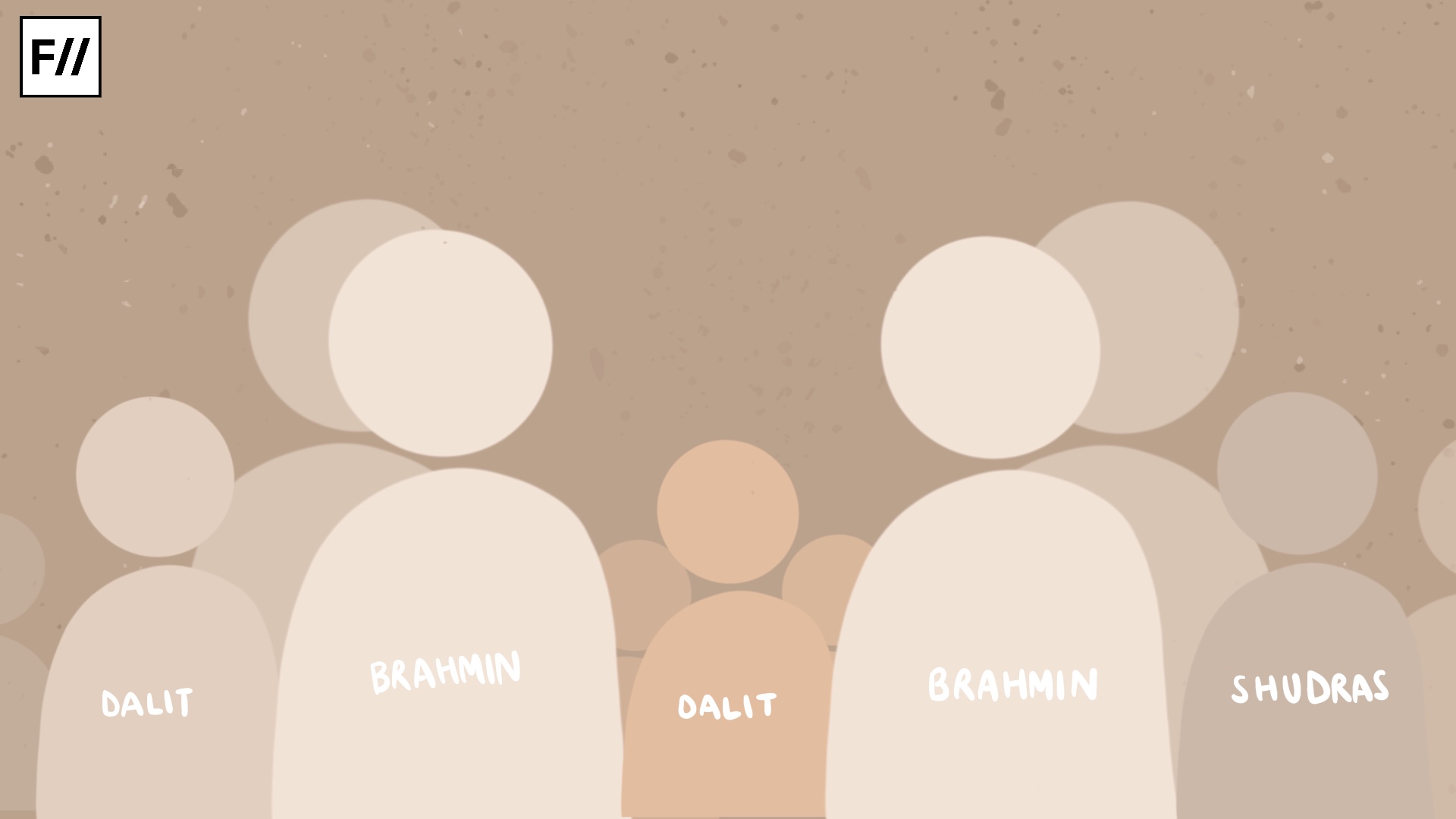When people move out of their homes to study or to work, one of the primary requirements that one looks for is shelter. For women who leave their homes for the purpose of higher education to a different city and especially to a metropolis like Delhi, they expect to explore the sides of life that they have been denied in the ‘protection’ of their homes. However, these limitations follow these women even in the different cities they move to, away from their families. While these women expect to be free of patriarchal norms, but they find it to be more intensified than ever in the new ‘homes’ they rent where everyone including their landlords, wardens and neighbors think that they have the right to police the women on behalf of their ‘parents’.
Pinjra Tod, a movement highlighting the issues of women living in Delhi PGs and hostels held a Jan Sunwai on 21st of February 2017 where a number of students gave first-hand accounts of the harassment and difficulties in their living condition. Paroma, a member of Pinjra Tod explains the purpose of holding this session: “The Jan Sunwai was organized to create a space for women students to come together and collectively raise voice against the patriarchal and casteist control and discrimination in our PGs and private hostels, because of the failure of the university to provide us with the basic right to accommodation”. The student organization invited MLA Pankaj Pushkar of Timarpur constituency who took a keen interest in the issues raised by the students and promised strategic and planned way to raise them in Vidhan Sabha.
The students continued the session on even when ABVP members tried to disrupt the session. The police anticipated violence as the group had already destroyed college property in Ramjas College and marched violently towards Jan Sunwai. As a result, police had to put up barricades around the discussion. Mr Pankaj Pushkar condemned this act of violence.
This event brought to light not only the tangible, evident and much-talked about issues in -paying-guest accommodations like escalating costs, unhygienic living conditions, no health security, dress codes and curfew time, but also the invisibilized areas of lived experiences of these women namely mental harassment, lack of support when it came to reporting sexual violence and the constant infantilization of 18+ year women by holding their parent’s responsible for their every supposed ‘transgression’.
Also Read: ‘Will You Be Back Early?’: Problems Single Women Face In Finding Accommodation
Many women articulated the feeling of dread because of the intense policing of their movement and their bodies by the PG authorities. Maria, a student from Kashmir gave an account of such policing where they had no place to dry their undergarments because that was considered shameful. Even the washrooms of the hostel were not safe from this kind of policing and girls were continuously required to hide these ‘shameful’ pieces of cloth from public eyes.
Another appalling incident was brought to light by Arshita, who used to reside in Army Wives’ Welfare Association where there would be a public meeting once a month to discuss the ‘inappropriate’ dressing of girls in the past month. These instances would be used as a bad example for the rest of the girls and thereby, they would be given lessons on appropriate dressing. These instances clearly demonstrate the violation of personal spaces of women living in PGs and how these acts are sanctioned in the name of maintaining the ‘respectability’ of the women and their PG.
This quotient of respectability is one of the most common arguments used by PG and Hostel owners to justify curfews and ban men from the premises. Sneha, a student from Miranda House recalls being in a PG called ‘Castle’ where there was a system of biometric surveillance through which a message was sent to her parents informing them about when she was inside and outside the PG. Many students recounted that it would be their parents to get the first call, and not them, if they returned past the curfew.
Anjali, a student who changed several PG’s during her graduation from Delhi University narrates an account of how she fell sick and suffered from mental illness in wake of personal tragedies and had the Warden of her hostel lecture her mother on suicide-prevention with the threat that she would be thrown out of the hostel if she continues to sick. The insensitivity to physical and mental health conditions extends even to emergency conditions as PG owners deny access to first-aid or hospitals after the curfew time.
This discussion also brought to light the discriminatory practices that are layered with caste and class bias. The most evident question would be of course of affordability of living spaces in the city that extends to only specific affluent groups who are secure enough to send the women out to study. But some PGs and hostels displayed overtly casteist arrangements of choosing girls from upper-caste backgrounds and also in terms of sharing resources. One of the students present recalled that in her PG, Dalits were not allowed to use the same pieces of furniture as the PG owners. In one instance, when the student refused to reveal her caste identity to a neighbor, she was not allowed to sit on her bed. The ‘cosmopolitan’ nature of a big city dangles the hope of respite from Brahminical institutions that organise identites around caste that are so prevalent in smaller towns and villages, but there is no escape even in the capital.

Image Credit: Pinjra Tod | Facebook
The reporting of sexual harassment is also not taken seriously and there is much victim-blaming involved. A student, who doesn’t want to be named, recounted her experience when she witnessed an attempt to rape. When she tried to warn the next lodger of the safety issues, she was asked to leave the room as she was ‘staining the reputation’ of the hostel.
Sneha, a Miranda House student, told the audience about “prank calls” she had received after coming to Delhi where the person said that he would insert an iron rod in her vagina. She immediately called the women’s helpline and the police came to her PG. However, the warden refused to let the police in and even denied Sneha’s presence in the hostel. She was later lectured on how this would cost the PG its reputation. These cases, along with several others, the most common among them being men masturbating in open outside women’s hostels, bikers racing past them and stalking, would be met by victim-blaming, shutting women indoors (not opening windows and balconies in some cases) and the moral dictums of dressing/behaving appropriately.
Women coming out of family settings into a new city expect to be rid of the patriarchal shackles they have been brought up with. They expect freedom of the new city and to claim the right to education, work and public life that they have been denied in the patriarchal setting of home which often uses their own safety as a clause to shackle them. On hearing these women speak, one understands how society endorses the control of women no matter where they are, making even university spaces a hub of patriarchal and Brahminical control with the ideas of ‘respectability’ and ‘protection’ used to trap women in mentally and physically suffocating conditions.
Pinjra Tod is a call for action and a very fruitful public platform to discuss real-life issues resulting from the basic economic exploitation of women students who lose out on a lot of opportunities and campus life due to above-discussed restrictions. It is important to fuel these discussions and bring them to the public arena. The women voiced the suffocation and intense mental pressure they continue to feel outside their homes, which was primarily meant to be a liberating experience. They are organizing their next event on 8th March 2017, appealing to the UGC to implement notification on sexual harassment and discrimination of women’s students that has been due for a long time now.
About the author(s)
Richa Thakur is a literature student who reads people and books wherever she goes. Researcher and experimenter by technique, she is currently concocting formulas to fight all kinds of patriarchy.




